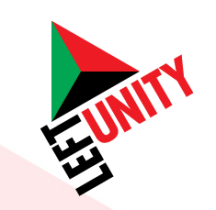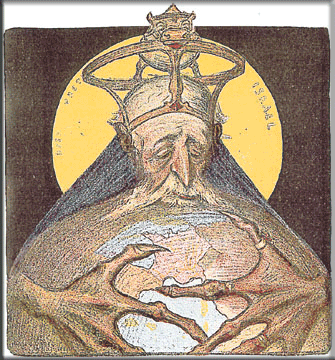 This is a side issue to the much-needed 999 Call for the NHS march and rally yesterday (about which more shortly) but when Andy Slaughter casually inserted a reference to Palestine solidarity into his speech about how Imperial NHS Trust are closing services in Hammersmith, I flinched.
This is a side issue to the much-needed 999 Call for the NHS march and rally yesterday (about which more shortly) but when Andy Slaughter casually inserted a reference to Palestine solidarity into his speech about how Imperial NHS Trust are closing services in Hammersmith, I flinched.
My impression is that it’s rarely OK for single issue campaigns to insert themselves into other totally unrelated single issue campaigns. Certainly, Palestine had not been ushered into the NHS demo by the organisers, nor could Palestine activism be said to characterise the rally. But I could sense it hovering nearby, and I want to confront it before moving onto other things.
 First of all, the Palestinian flag is red, white, green and black. So is the People’s Assembly logo – and Left Unity is even more overt.
First of all, the Palestinian flag is red, white, green and black. So is the People’s Assembly logo – and Left Unity is even more overt.
Coincidence?
Perhaps so. Most flags in the Arab world have red, white, green and black. And on the left it’s green for environmentalism, red for socialism, black for anarchism, on a white background. If the similarity is incidental, then I wouldn’t want to make too much of it. That said, there’s a certain pointy-ness to the left logos which is reminiscent. And the timbre of the colours. Which is why – and any marketer would understand this – I find it the resemblance unconsciously and now consciously off-putting. Even as somebody who is pro-Palestinian and generally anti-nationalist (or weakly civic nationalist).
 Because the left has tried to make Israel central. This is in no way far fetched. Both Islamists and pan-Arabists have done the same. Israel is a useful diversion from what is actually wrong with an economy / society / body politic. There’s a name for constructing something else, something other, as the culprit. I hoped we’d seen the back of it with the Arab Spring. But then authoritarianism mostly beat pluralism and with it democracy. Really, I can’t stand scapegoating.
Because the left has tried to make Israel central. This is in no way far fetched. Both Islamists and pan-Arabists have done the same. Israel is a useful diversion from what is actually wrong with an economy / society / body politic. There’s a name for constructing something else, something other, as the culprit. I hoped we’d seen the back of it with the Arab Spring. But then authoritarianism mostly beat pluralism and with it democracy. Really, I can’t stand scapegoating.
For these reasons I wasn’t surprised that the first #march4nhs tweets I saw on the day were from a few accounts with Palestine flags or Palestine-related names. They were very quick out of the blocks before the thing started in earnest. I remembered how much bigger last month’s anti-Israel rally had been than yesterday’s broad and inclusive NHS rally, which has done far more to promote and unify. For example I have never seen such a diversity of age, sex, religion, ethnicity, political leaning, and background on a single platform as I did at the NHS rally. So the fact that so many more turned out the anti-Israel demo, I take to be reflection of priorities on the left. Weggis66 thinks that since people turned up all the way along, this would have led to lower numbers on the day, but I’m not convinced. I don’t think that privatised services is as thrilling as Israelis doing what other countries routinely do – try to destroy their enemies and hurt a lot of people in the process. Remember the LTTE? No, probably not – there was very little fuss from the quarters that evince such horror when Gaza is beaten up.
I’m fully aware that sections of the left, noticing that the issue of Palestine can unify usually-disparate groups in society, have long tried hard to attach it to other left wing causes. For example, I travelled overnight in a coach to the G8 summit in Edinburgh (a decade ago?) to discover that the War On Want debt cancellation demo whose ranks I was swelling often resembled an anti-Israel demo. I remember various trade unions made it a core issue to exclude Israelis and only Israelis, how Avaaz, which never sends out opinion pieces, sent one from Tutu urging a boycott of Israel, how the Israel is the only country, really, targeted for exclusion from our high streets, and how anti-Israel sentiment always hurts Jews (and the activists so often miss – remember the paediatricians?). The list goes on. God, if only the world’s conflicts had as dedicated, concerned, activism. Only, hang on – it isn’t working. It’s wide of the mark.
I still think the loudest Palestine solidarity activism in this country is antisemitic. Perhaps stop reading here, because I’m about to resurrect an old theme.
Typically, pro-Palestine campaigning proposes double standards against Israel. It seeks a single state for a region hostile to Jews (incidentally often voting Yes for Scottish separatism). It usually fronts the Socialist Worker Party with its antisemitic proclivities. It annoints Hamas (will not recognise Israel, very authoritarian) and condemns democratic, progressive, secular Israelis who are, despite the catastrophising, numerous, and who need and deserve the support of the British left. Its identity politics spits ‘Zionist’ as a cuss word (again, while many of the same people coo over Scottish nationalism) when it has always been a simple Jewish liberation / defence movement supported by almost all Jews. It seeks to position the only Jewish state at the centre of the world’s problems the way antisemites held Jews culpable throughout history. It usually scoffs or bristles – or, chillingly, glows with pride – when anybody raises the possibility that it might be antisemitic.
Better Palestine activism would support Palestinian state-building and political transformation. I don’t know where to find Palestinian grassroots civil society organisations to work with (Palestine is not at the centre of my world) but a genuinely dedicated pro-Palestine activist (rather than a centrally anti-Israel one) would be motivated to. I know they exist, and that their government does not grasp that they should be autonomous, that they are destabilised by the conflict and the occupation, and that they have a role in policy i.e. beyond service. I know they get a hell of a lot of aid which is inefficiently spent, and that they risk losing their constituencies. On the joint Israeli and Palestinian side, there is Friends of the Earth Middle East, Children of Peace, OneVoice, and on the Israeli side, BTselem, Gisha, The New Israel Fund, these others, and not to mention the small, beset organised political left who, with international networks of concerned supporters, are trying to keep alive the two state prospect because – surely it’s obvious – the respective societies are so split that right now the only alternative to two states is destructive violence, a zero-sum game to the bitter end, after which segregation, ethnic cleansing, possibly genocide. And that part of the world is crazy enough at the moment, thanks.On the Palestinian side, if Palestinian trade unions call for a boycott of stuff produced in the occupied territories, then we can boycott it in good conscience, I’d say. With due care.
There’s plenty more. I have other things to do – neither Israelis nor Palestinians are at the centre of my world. But you can recognise campaigners who are using pro-Palestinian as a mask for anti-Israel because they do not care to investigate.
And meanwhile Palestine solidarity has virtually nothing – nothing – to do with our well-being in the UK. If Palestine solidarity activism unifies an eddying left, that means the left is disorientated and parts of it are rotten. Put Palestine solidarity activism in its place.





